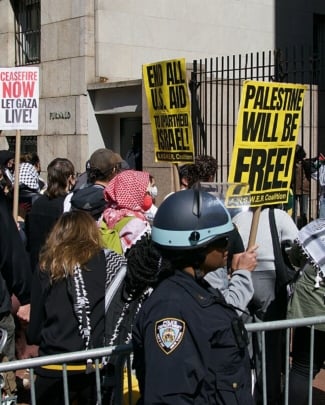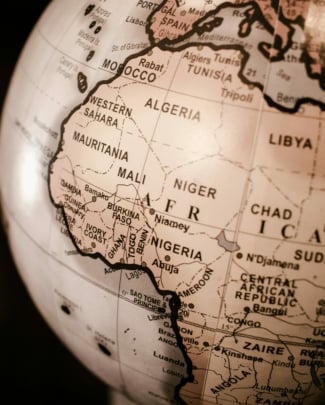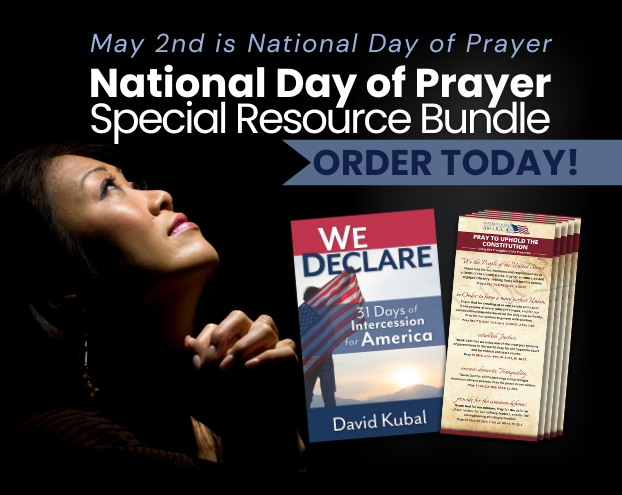According to the annual Accelerating Acceptance report, conducted by The Harris Poll on behalf of LGBT advocacy group GLAAD, the number of Americans 18 to 34 who are comfortable with LGBT people in various situations slipped from 53% in 2017 down to 45% in 2018. And the 53% figure is down from 63% in 2016.
The survey asked men and women of various age brackets whether they are uncomfortable with the following:
- Learning a family member is LGBT.
- Having your child placed in class with an LGBT teacher.
- Learning your doctor is LGBT.
- Learning your child had an LGBT history lesson in school.
The largest drop in “acceptance” appears to be among the youngest age bracket.
Pray about the push to legislate acceptance of the LGBT ideology with this free resource.
Click below to get your copy.
In 2018, 36% of young people said they were uncomfortable learning a family member was LGBT, compared with 29% in 2017.
Likewise, 34% were uncomfortable learning their doctor was LGBT vs. only 27% a year earlier.
In addition, 39% said they would be uncomfortable learning their child had a school lesson on LGBT history vs. 27% two years prior.
It appears young women have dropped the most in their comfortability with LGBT people. In 2017, 64% were comfortable compared to 52% in 2018.
Also of note, in 2017, people ages 72 and up were the most uncomfortable learning a child had an LGBT lesson in school.
John Gerzema, CEO of The Harris Poll, expressed concern over these numbers to USA TODAY: “We count on the narrative that young people are more progressive and tolerant. These numbers are very alarming and signal a looming social crisis in discrimination.” [It’s obvious that John Gerzema of The Harris Poll has ideas on what is a social crisis…]
USA Today reported that when Sarah Kate Ellis, president and CEO of GLAAD, looked closer, she discovered the younger age bracket actually interacted more with LBGT people, “particularly individuals who are non-binary and don’t identify simply as lesbian or gay.”
She blamed their lower comfort level on “a newness that takes time for people to understand.”
Both Gerzema and Ellis blamed the lack of tolerance on the Trump administration’s policy efforts regarding transgender people in the military and religious liberty issues.
But this makes no sense. If politics is really downstream from culture, and there is more equality in America than ever before, wouldn’t the culture reflect and accept that notion of being more tolerant?
A better way to understand the survey results might be to look at how pushy, even aggressive, the LGBT movement has been in ensuring its rights supersede the rights of others.
Whether it’s lawsuits for “bathroom rights” or lawsuits against religious people who can’t in good conscience bake a certain cake, the LGBT community is not advocating “equal rights” but supreme rights that marginalize everyone else’s.
This aggressive push for LGBT “equality” may actually be backfiring, causing even young people to feel discomfort and alienation. . .
The LGBT movement is now defined by fighting against gender norms, demanding that children in drag become an accepted new normal, and filing lawsuits so that biological males can use women’s restrooms.
This kind of aggressive, entitled behavior is difficult to acquiesce to, especially when it infringes upon the rights of others who would rather not participate.
Instead of hoping people would become more “comfortable” around the LGBT community, it may be worthwhile for GLAAD and other groups to consider the effect their campaign is having on other people. . . .
(Excerpted from The Daily Signal, article by Nicole Russell.)






Comments
That is like pointing my finger at the devil and saying, “Okay, but you be nice, now.” Jus sayin…..
The only thing I would be uncomfortable about in regards to LGBT is a child with an LGBT teacher. Having taught as many years as I did, being a teacher is like an open door. They would be more likely to try sharing their lifestyle & why they feel it’s okay. Some may even try to force their views on them. The same as some Christians, rather than sharing the gospel with people, try to force that on them. Children are susceptible! There is no other adult in the room during their class time to protect them from the things that are being taught, whether it’s right or wrong! They are open prey to the one who is teaching. That is why we must make sure if we have LGBT teachers in our classrooms, it is agreed that their chosen lifestyle is just that! Theirs & theirs alone, & has nothing to do with the curriculum being taught in the classroom.